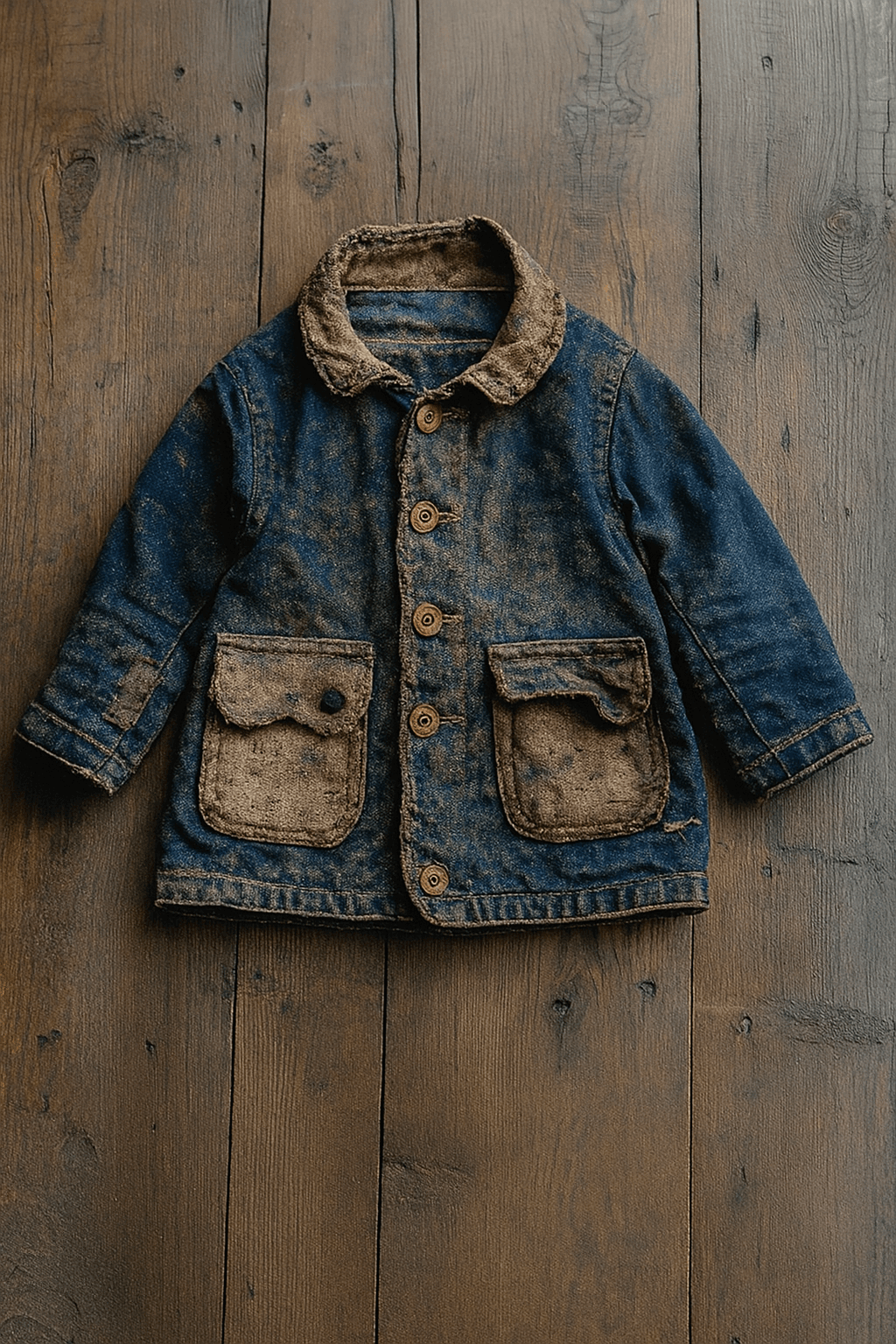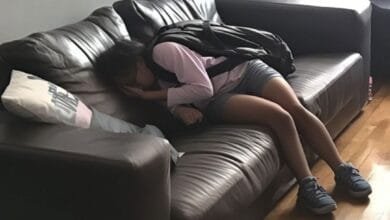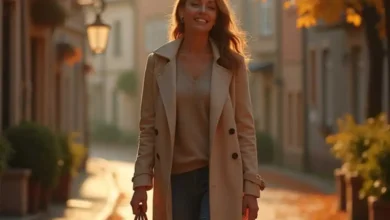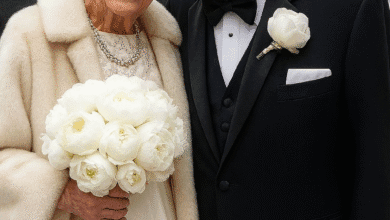“The Red Jacket: A Reunion That Changed Everything”

Catherine believed she had moved on from her tragic past. But when she decided to throw away her childhood jacket, she had no idea it would bring everything rushing back. The next morning, a knock on her door would change everything—forcing her to confront decades of pain and face an unexpected reunion.
It was a Saturday like any other. Catherine tied her hair up, grabbed a bucket of cleaning supplies, and climbed into the attic. Her husband, Andrew, had taken their kids, Tom and Tana, into the city for errands, giving her the solitude she needed to tackle a task she had been avoiding for months. The cold January air nipped at her skin as she opened dusty boxes, pulling out old birth photos, college keepsakes, and even her wedding veil.
Then she froze.
At the bottom of an old trunk, neatly folded, was a small red jacket.
The sight of it hit her like a wave. Suddenly, she was four years old again, standing in that very jacket, clutching a secondhand teddy bear, as the heavy oak doors of the children’s shelter closed behind her. Her mother had knelt down beside her, whispered, “Be strong, Katie,” and then disappeared into the falling snow. Catherine had never seen her again.
She ran her fingers along the frayed fabric. For years, that jacket had been a symbol of her survival. But now, it felt like a weight—a relic from a life she had worked so hard to leave behind. She wasn’t that abandoned little girl anymore. She was a businesswoman, a wife, and a mother.
Maybe it was time to let it go.
Without hesitation, Catherine brought the jacket downstairs and tossed it into the garbage bin by the curb. As the lid closed, she felt a strange sense of closure—as though a difficult chapter in her life had finally ended.
The next morning, she was just waking up when Andrew called from downstairs:
— “Honey, you need to come here!”
Still groggy, Catherine threw on her robe and went to the front door—where a frail, older woman in tattered clothing stood, clutching the red jacket.
Catherine’s heart skipped a beat. There was something unsettlingly familiar about the woman’s face.
— “I found this in your trash,” the woman said softly. “I was just looking for something warm… but when I picked it up, I recognized it.”
Catherine stared, speechless.
— “Hi, Katie,” the woman whispered, tears welling in her eyes.
Catherine’s breath caught in her throat.
— “No… It can’t be.”
— “It’s me,” the woman said. “It’s your mama.”
Andrew stepped forward gently and cleared his throat.
— “Why don’t you come inside?” he offered.
Catherine nodded, stunned, and led the woman into the kitchen.
Once Andrew took the children outside to play, Catherine sat across from the woman—her mother, Margaret. The air between them was thick with tension as Margaret clutched the jacket.
— “Why now?” Catherine asked, her voice cold. “Why after all these years?”
Margaret stared into her tea, her hands trembling.
— “I never wanted to leave you, Katie. I thought I was doing what was best. I had no food, no money, no way to care for you. The shelter… I thought it could give you what I couldn’t.”
Catherine’s eyes filled with tears.
— “You didn’t even try.”
Margaret looked up, her face heavy with regret.
— “I thought you’d be adopted by someone who could give you everything. I didn’t want you to watch me fail.”
Catherine wanted to scream, to tell her mother how wrong she had been. Her childhood had been a blur of shelters and foster homes, longing for love, stability, and answers. But when she looked into Margaret’s tearful eyes, she saw the weight of decades of sorrow.
— “I don’t know what you expect from me,” she said at last. “I’ve built a good life. But it wasn’t easy. I don’t know if I can let you in.”
Margaret nodded slowly.
— “I understand. I don’t deserve a place in your life. I just… needed to see you. To know you were okay. And you are. You’re more than I ever dreamed.”
Margaret stood up, gripping the jacket and preparing to leave. But just as she reached the door, Catherine spoke:
— “Wait.”
Margaret turned.
— “You can stay for the day. Maybe tonight. After that… we’ll see.”
Margaret’s face lit up with fragile hope.
— “Thank you, Katie. Thank you.”
That evening, Catherine gave her mother clean clothes and let her stay in the guest room. Before bed, she handed Margaret $2,000 in cash.
— “This is for you,” she said. “You can use it to start over. Or leave. It’s your choice.”
Catherine half-expected the room to be empty the next morning.
Instead, she found Margaret in the kitchen, arms full of groceries.
— “I went to the market early,” Margaret said with a soft smile. “Thought I’d make soup for lunch. Maybe roast chicken for the kids.”
Catherine blinked, uncertain.
— “I don’t mind,” she murmured.
Margaret stayed for several days—cooking, helping with the kids, just being present. Slowly, Catherine began to soften. When she told the children who Margaret truly was, they forgave her instantly—and started calling her “Grandma.”
Margaret became part of their lives. She played with the children, helped Catherine with her jewelry business, and even designed a few pieces of her own. In time, Catherine forgave her. And for the first time in years, she felt what it meant to have a family.
One day, Catherine bought a new red jacket—not to replace the old one, but to mark the beginning of a new chapter.
A chapter built on forgiveness, resilience, and love.





